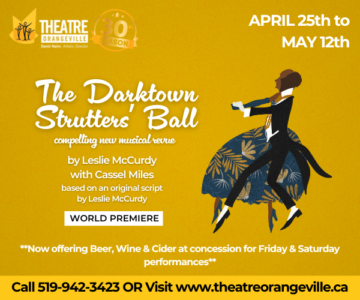Libertarians, populists and procrastinators
Hot rocks, put it off, a passing thought, war flags and Holy typo! Miscellany from Douglas G. Pearce’s Countryside Digest.
Hot Tip
“A massive store of clean, renewable energy, the ‘hot rocks’ that are close to the surface in Western and Northern Canada, could generate more electricity than the country now consumes. This was the finding of a recent report on geothermal energy by 12 scientists for the federal Geological Survey of Canada.
“‘Canada’s in-place geothermal power exceeds one million times Canada’s current electrical consumption,’ the report asserts. The heat is closest to the surface in large swaths of British Columbia, Alberta, the Yukon and the Northwest Territories, but exists in substantial amounts all across Canada.
“The report points out that geothermal has distinct advantages over not only fossil fuels and nuclear energy, but also wind, solar and biofuels, since the planet’s internal heat is available 24 hours a day, year-round.” From Montreal Gazette, quoted in the CCPA Monitor, Dec/11-Jan/12.
Gee Haw
“Oxen are not harnessed and guided by reins as are horses. The team of two is connected by a simple handmade wooden yoke. They are guided by voice command, the position and movement of the driver, and the occasional persuasion (or distraction) of a goad stick, a light stick with a switch at the end.” From The Canadian Organic Grower, Winter/12.
Vive Le Vermont Libre
“The Second Vermont Republic arose from the statewide anti-war protests in 2003. It embraces a left-wing populism that makes it unique among the national movements, which usually veer more toward Ron Paul libertarianism. The Vermont movement, like the Texas and Alaska movements, is well organized. It has a bimonthly newspaper called the Vermont Commons, which champions sustainable agriculture and energy supplies based on wind and water, and calls for locally owned banks that will open lines of credit to their communities. Dennis Steele, running for governor as a secessionist, runs Radio Free Vermont, which gives venue to Vermont musicians and groups, as well as being a voice of the movement. Vermont, like Texas, was an independent republic, but on March 4, 1791, voted to enter the union. Supporters of the Second Vermont Republic commemorate the anniversary by holding a mock funeral procession…” From The World As It Is: Dispatches on the Myth of Human Progress, by Chris Hedges, Nation Books, 2011.
Ig Nobel
“The literature prize went to retired Stanford University professor John Perry for his eloquent explanation of ‘structured procrastination.’ As he writes at structuredprocrastination.com, ‘the procrastinator can be motivated to do difficult, timely and important tasks, as long as these tasks are a way of not doing something even more important.’” From New Scientist, Oct 8/11.
Hello?
“According to the wireless trade group CTIA, there are now 327.6 million active phones, tablets, and laptops on cellular networks in the U.S. That compares with 315 million women, men, girls, boys, and infants populating the country, including Puerto Rico, Guam, and the Virgin Islands.” From CCPA Monitor, Dec/11-Jan/12.
Passing Thought
“In dutifully reconstructing past thought, I have tried always to remember a simple truth about the past that the historically inexperienced are prone to forget. Most people in the past either died young or expected to die young, and those who did not were repeatedly bereft of those they loved, who did die young. Consider the case of my favourite poet, the Jacobean master John Donne, who lived to the age of fifty-nine… In the space of sixteen impecunious years, Anne Donne bore her husband twelve children. Three of them, Francis, Nicholas and Mary, died before they were ten. Anne herself died after giving birth to the twelfth child, which was stillborn. After his favourite daughter Lucy had died and he himself had very nearly followed her to the grave, Donne wrote his Devotions upon Emergent Occasions (1625), which contains the greatest of all exhortations to commiserate with the dead: ‘Any man’s death diminishes me, because I am involved in Mankinde; And therefore never send to know for whom the bell tolls; it tolls for thee.’” From Civilization: The West and the Rest, by Niall Ferguson, Penguin Press, 2011.
Weather Vanes
“The simple weather vane was once an instrument of war? So it seems. ‘Originally fabric pennants were used to show medieval archers the direction of the wind,’ tells Alfred Denninger, who custom crafts modern weather vanes in Theodosia, Mo. ‘The word “vane” comes from the Anglo-Saxon word “fane” meaning flag.’” From Homestead, Winter/11.
Holy Typo
“The Authorized Version (as the King James Bible of 1611 came to be known) stands alongside the plays of William Shakespeare among the greatest works of English literature. The team of 47 scholars who produced it were let down by the royal printers only once. The 1631 edition – known as ‘the Wicked Bible’ – omitted the word ‘not’ from the commandment ‘Thou shalt not commit adultery.’” From Civilization: The West and the Rest, by Niall Ferguson, Penguin Press, 2011.
Young Michael Moore
“For some reason, I never found my way to the path called ‘normal.’ And it was a good thing science and business had not yet conspired to invent ways to sedate and desensitize a little soul like mine. It’s one of the few times I thank God for growing up in the ignorant and innocent fifties and sixties. It would still be a few years before the pharmaceutical community would figure out how to dope up a toddler like me and have the teachers send me off to the ‘time-out room.’” Michael Moore in his autobiography, Here Comes Trouble, Grand Central Publishing, 2011.
Sure
“No evidence exists that aliens have ever ‘contacted or engaged any member of the human race,’ nor is there evidence that life exists ‘outside our planet.’ So said the White House in response to two petitions this week calling on the US government to admit to any contact with aliens.” From New Scientist, 12 Nov/11.






